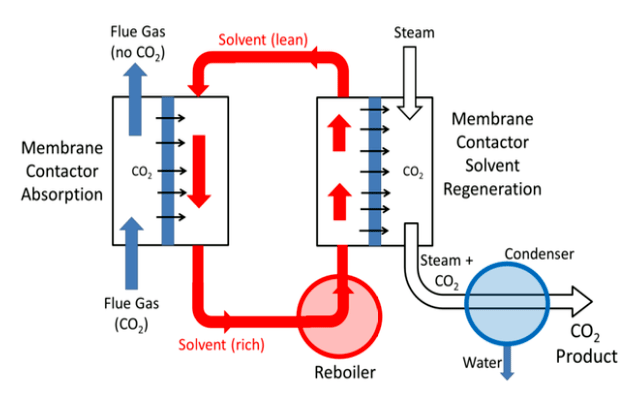Research
Sustainable energy and industrial processes
Our research motivation is to implement sustainable energy and industry processes within Australian and international industry, particularly focused on developing effective separation technology for carbon abatement as well as the transition to future fuels and their distribution. This component of our research has a very strong applied focus, which is based on working with industry partners to develop solutions, particularly through membrane separation technology. This research spans fundamental membrane theory development, novel polymer synthesis for viable membrane technology, implementation of strategies to improve membrane separation performance and industry pilot plant testing with techno-economic study for commercialisation purposes. A combined knowledge of chemical engineering, separation processes, polymer chemistry and process engineering are the platforms for this research program.

Future technologies
We are focused on developing the next generation of chemical engineering technologies, to transform how society fabricates, uses and disposes of chemicals. We specifically target the developing industries of tomorrow; the future energy sectors, space industries as well as resource management and recovery. Our goal is to implement transformative technology in these industries, to solve the current challenges they face and prevent the mistakes of the past being repeated.
We utilise separation processes, such as membranes, to generate new technologies that utilise novel methods to achieve targeted outcomes, such as more efficient fuel production and recycling of polymer wastes. These systems are based on mass transfer principles, process integration and intensification as well as miniaturisation that develops technologies that can achieve better outcomes than conventional approaches.
This research encompasses the fields of physical and polymer chemistry, materials science and chemical engineering to develop clever and novel technologies that reimagine how chemistry is done.
Molecular engineering
We are interested in understanding the fundamentals of how molecular motion occurs and imposes change within the surrounding region. We utilise this knowledge to manipulate molecules through their dynamic motion to enable selective separation and reactions, which has implication in developing engineering processes at the molecular level, transforming energy and chemical processing to a more efficient and cleaner future.
The focus is on molecular motors and fluorophore compounds, which dynamically interact with light and electromagnetic fields changing their charge state, molecular orientation and rotation rate. We incorporate these materials within a flexible environment, in which the controllable molecular motion and dynamics can be transferred to the surrounding medium. This enables the material properties to be manipulated for selective purposes, such as targeting specific molecules, rejecting certain compounds and favouring important reactions.
This research encompasses the fields of physical chemistry, spectroscopy, materials science, chemical and molecular engineering to develop control chemical processes on the molecular level. This research is transferring chemical processing to the molecular level.